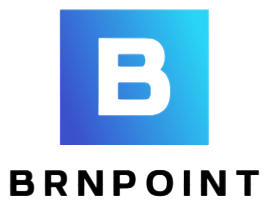Where to Track down the Best Arrangements on Delta 8 THC Vape carts On the web
With regards to finding the best arrangements on Delta 8 THC Vape carts on the web, insightful customers should be key. THC, or tetrahydrocannabinolic corrosive, is a non-psychoactive cannabinoid found in marijuana that believers to THC when warmed. This compound has acquired prominence for its potential medical advantages, and Delta 8 THC Vape carts offer a helpful method for consuming it. This is the way you can track down the best arrangements and guarantee you are getting great items. Above all else, begin by investigating legitimate web-based dispensaries and retailers. Search for deeply grounded brands with positive surveys from confirmed clients. Online discussions and audit locales can be important for measuring the validity of various merchants. Focus on criticism in regards to item quality, client support, and delivery dependability. Then, think about costs across various stages. Numerous internet based retailers offer special limits, mass buy arrangements, or first-time purchaser motivations.
By watching out for these offers, you can frequently track down huge investment funds. It is likewise astute to buy into pamphlets or follow virtual entertainment records of your number one brands to remain informed about impending deals and unique advancements. One more significant element to consider is the straightforwardness of the retailer in regards to item data. Trustworthy venders will give point by point depictions of their best delta 8 thc carts, remembering data for strain, intensity, and extraction strategies. They ought to likewise offer outsider lab results to check the virtue and cannabinoid content of their Delta 8 THC Vape items. This straightforwardness helps in pursuing an educated choice and guarantees that you are buying a protected and compelling item. Moreover, exploit online coupon codes and cash back offers. Numerous web based business destinations team up with markdown sites or powerhouses to give restrictive arrangements. A speedy quest for coupon codes or limited time offers connected with Delta 8 THC Vape carts can prompt extra investment funds. Cash back projects can likewise be gainful, as they offer a level of your buy back, which can accumulate over the long run.
Besides, consider investigating membership benefits that proposition repeating conveyances of Delta 8 THC Vape carts. These administrations frequently give a markdown on normal orders and can be a helpful method for keeping a consistent stockpile. They likewise permit you to attempt various items and brands, assisting you with tracking down the ones that best address your issues. In conclusion, consistently check the lawfulness of buying Delta 8 THC Vape carts in your area. Weed regulations change broadly by area, and it is essential to guarantee that you are in consistence with nearby guidelines. Trustworthy internet based dealers will commonly give clear data about transportation limitations and legitimate necessities, so you can make buys with certainty. By following these techniques, you can successfully explore the web-based commercial center and secure the best arrangements on Delta 8 THC Vape carts. Make sure to focus on quality and legitimateness close by cost reserve funds to guarantee a palatable and consistent buying experience.



